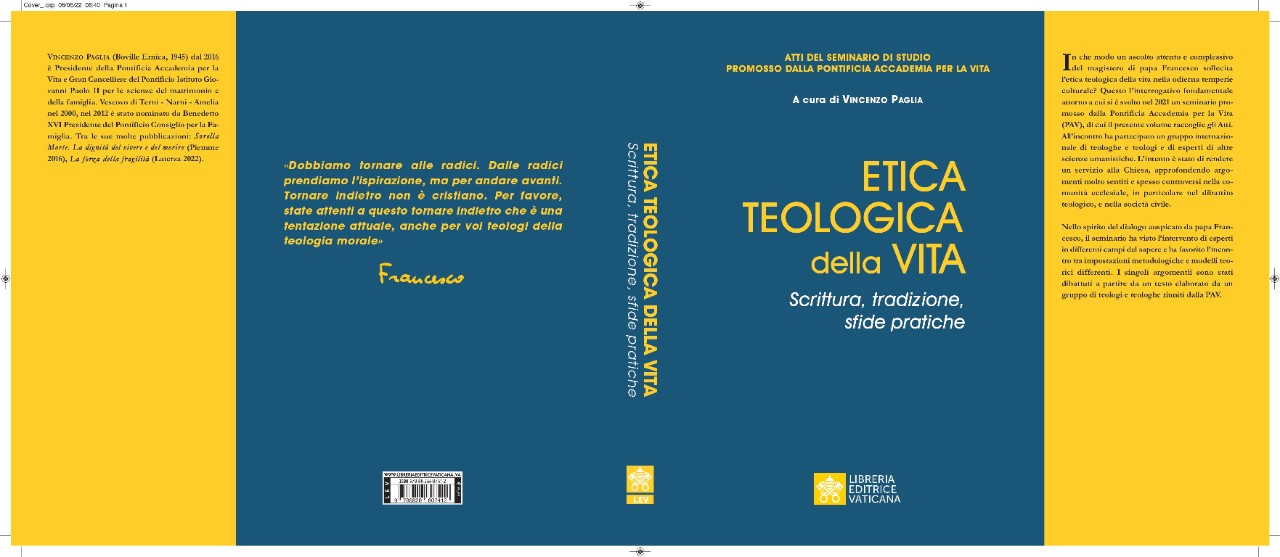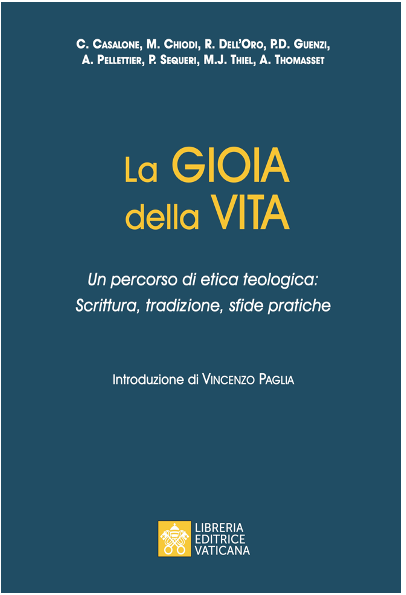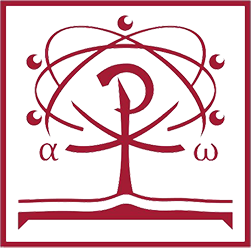On Theological Ethics of Life

In June 2022, the volume "Etica Teologica della Vita" (Theological Ethics of Life) was published by LEV, edited by PAV.
It is a collection of the proceedings of a seminar promoted by PAV from a basic text - The Joy of Life - now published in book form (see opposite), compiled by a group of theologians of various nationalities. The text, and the ensuing seminar, is intended to welcome into the moral theological sphere the ten-year magisterium of Pope Francis, who was alerted to the initiative and encouraged it.
Preface by Abp. Vincenzo Paglia
The purpose of this volume is to initiate debate on the many topics of the theological ethics of life. This page is intended to bring together this academic and ecclesial discussion and is continuously updated. Naturally, the opinions expressed are the sole responsibility of the individual authors.
ACADEMIC REVIEWS
2025
2023
- J. De Tavernier, Etica Teologica della Vita, Marriage Families and Spirituality, 29, pp. 114-131, 2023 by INTAMS/Peeteres
- D. Collin, La morale de l'Eglise en danger?, La Nef
- Revue d'éthique et de théologie morale 2023/3 (N° 318), pages 123 à 127.
2022
- J. L. Ferrer, Rileggere L’etica Teologica Della Vita alla luce delle sollecitazioni di papa Francesco , La Civiltà Cattolica Quaderno 4129, pag. 60 – 71, Anno 2022, Volume III, 2 Luglio 2022 ENGLISH ESPANOL
- R. Dell'Oro, PhD, M. T. Lysaught, PhD, Theological Ethics of Life: A New Volume by the Pontifical Academy for Life - Review Essay July 13, 2022 EDT
- C. Casalone, Éthique théologique de la vie, Choisir, 4515, novembre 2022.
- S. Semplici, Etica critica, discernimento, democrazia, BIOETICA, XXX(1-2), 2022, 123-140
- S. Zamboni, Etica teologica della vita. Scrittura, tradizione, sfide pratiche. Atti del Seminario di studio promosso dalla Pontificia Accademia per la Vita, Studia Moralia, dicembre 2022, 388-394. Una pubblicazione che vuole proporre un dibattito accademico "è perfettamente conforme non solo all’istanza sinodale oggi così attuale, ma anche al ministero proprio della teologia, che non può limitarsi a ripetere, magari stancamente, l’insegnamento magisteriale, ma che ha il dovere, proprio per rispetto nei confronti del Magistero, di stimolarlo ed eventualmente farlo progredire".
- M. Chiodi, Intorno a Etica teologica della vita. Scrittura, Tradizione, sfide pratiche, in «Teologia» 47 (2022), 609-617.
NEWSPAPERS
- L'Osservatore Romano, Per un’Etica Teologica della Vita, 30 giugno 2022
- Avvenire, P. Sequeri: Un caso esemplare di autentico esercizio sinodale, 09 luglio 2022. ENG - SPA - POR
- Vatican News, Teologi a confronto sulla vita: pubblicati gli Atti di un seminario della Pav, 30 giugno 2022. ENG - SPA - FRA
- The Wall Street Journal, Francis X. Rocca, Is the Catholic Church Rethinking Contraception? - Dec. 30, 2022
WEB
- Fondazione Lanza - Seminario "Etica Teologica della Vita" - Video. Sintesi - Intervento M. Mascia - 21 febbraio 2023
- National Catholic Reporter, Todd A. Salzman, Conservative defense of Humanae Vitae is not just about contraception, February 6, 2023
- Settimana News – Infallibilità sulle questioni morali? Intervista a don Maurizio Chiodi
- Il Mantello della Giustizia, G. Cioli, Etica Teologica della Vita, 1 febbraio 2023
- Blog Come Se Non, A. Grillo, Sulla vita. Teologia e Cultura, 25 agosto 2022
- Vida Nueva Digital, Entrevista Rodrigo Guerra, 4 agosto 2022
- First Things, G. L. Mueller - S. Kampowski, Going Beyond the Letter of the Law, August 27, 2022
- You Tube, Church’s Infallible Teaching Against Contraception Is ‘Certainly True’ A Response to Pontifical Academy for Life
Pope Francis: the duty of theologians is research, you can not do theology with a "no" in front of it (July, 30 2022): ENG - ITA - ESP - POR - FRA
THE JOY OF LIFE A path of theological ethics: Scripture, tradition, practical challenges.
Introduction by Vincenzo Paglia.
Published here are the reflections of some internationally renowned theologians who propose a reflection on the challenges of contemporary theological ethics. The volume is presented by the President of the Pontifical Academy for Life, under whose aegis the text was conceived and is now published.

